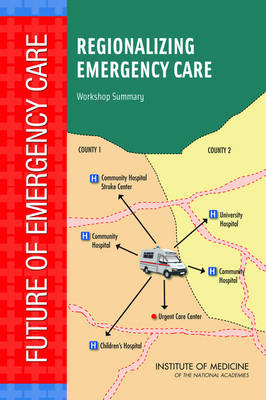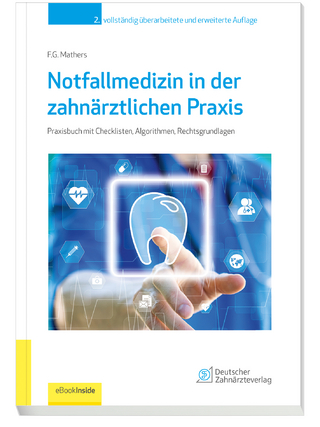
Regionalizing Emergency Care
Workshop Summary
Seiten
2010
National Academies Press (Verlag)
978-0-309-15151-1 (ISBN)
National Academies Press (Verlag)
978-0-309-15151-1 (ISBN)
- Titel z.Zt. nicht lieferbar
- Versandkostenfrei innerhalb Deutschlands
- Auch auf Rechnung
- Verfügbarkeit in der Filiale vor Ort prüfen
- Artikel merken
During medical emergencies, hospital staff and emergency medical services (EMS) providers, can face barriers in delivering the fastest and best possible care. Overcrowded emergency rooms cannot care for patients as quickly as necessary, and some may divert ambulances and turn away new patients outright. In many states, ambulance staff lacks the means to determine which hospitals can provide the best care to a patient. Given this absence of knowledge, they bring patients to the closest hospital. In addition, because emergency service providers from different companies compete with each other for patients, and emergency care legislation varies from state to state, it is difficult to establish the necessary local, interstate, and national communication and collaboration to create a more efficient system.
In 2006, the IOM recommended that the federal government implement a regionalized emergency care system to improve cooperation and overcome these challenges. In a regionalized system, local hospitals and EMS providers would coordinate their efforts so that patients would be brought to hospitals based on the hospitals' capacity and expertise to best meet patients' needs. In September 2009, three years after making these recommendations, the IOM held a workshop sponsored by the federal Emergency Care Coordination Center to assess the nation's progress toward regionalizing emergency care. The workshop brought together policymakers and stakeholders, including nurses, EMS personnel, hospital administrators, and others involved in emergency care. Participants identified successes and shortcomings in previous regionalization efforts; examined the many factors involved in successfully implementing regionalization; and discussed future challenges to regionalizing emergency care. This document summarizes the workshop.
Table of Contents
Front Matter
Overview
Workshop Introduction
1 Regionalized Trauma Care: Past, Present, and Future
2 Emerging Models of Regionalization
3 Lessons from Other Systems
4 Regionalization: Potential and Pitfalls
5 Governance and Accountability
6 Financing
7 Data and Communications
8 Preparedness
9 Wrap-Up Discussion with Federal Partners
Appendix A: Workshop Agenda
Appendix B: Workshop Presenters and Participants
Appendix C: The Future of Emergency Care: Key Findings and
Recommendations from 2006 Study
In 2006, the IOM recommended that the federal government implement a regionalized emergency care system to improve cooperation and overcome these challenges. In a regionalized system, local hospitals and EMS providers would coordinate their efforts so that patients would be brought to hospitals based on the hospitals' capacity and expertise to best meet patients' needs. In September 2009, three years after making these recommendations, the IOM held a workshop sponsored by the federal Emergency Care Coordination Center to assess the nation's progress toward regionalizing emergency care. The workshop brought together policymakers and stakeholders, including nurses, EMS personnel, hospital administrators, and others involved in emergency care. Participants identified successes and shortcomings in previous regionalization efforts; examined the many factors involved in successfully implementing regionalization; and discussed future challenges to regionalizing emergency care. This document summarizes the workshop.
Table of Contents
Front Matter
Overview
Workshop Introduction
1 Regionalized Trauma Care: Past, Present, and Future
2 Emerging Models of Regionalization
3 Lessons from Other Systems
4 Regionalization: Potential and Pitfalls
5 Governance and Accountability
6 Financing
7 Data and Communications
8 Preparedness
9 Wrap-Up Discussion with Federal Partners
Appendix A: Workshop Agenda
Appendix B: Workshop Presenters and Participants
Appendix C: The Future of Emergency Care: Key Findings and
Recommendations from 2006 Study
1 Front Matter; 2 Overview; 3 Workshop Introduction; 4 1 Regionalized Trauma Care: Past, Present, and Future; 5 2 Emerging Models of Regionalization; 6 3 Lessons from Other Systems; 7 4 Regionalization: Potential and Pitfalls; 8 5 Governance and Accountability; 9 6 Financing; 10 7 Data and Communications; 11 8 Preparedness; 12 9 Wrap-Up Discussion with Federal Partners; 13 Appendix A: Workshop Agenda; 14 Appendix B: Workshop Presenters and Participants; 15 Appendix C: The Future of Emergency Care: Key Findings and Recommendations from 2006 Study
| Verlagsort | Washington |
|---|---|
| Sprache | englisch |
| Maße | 152 x 229 mm |
| Themenwelt | Medizin / Pharmazie ► Gesundheitswesen |
| Medizin / Pharmazie ► Medizinische Fachgebiete ► Notfallmedizin | |
| Medizin / Pharmazie ► Medizinische Fachgebiete ► Pädiatrie | |
| ISBN-10 | 0-309-15151-1 / 0309151511 |
| ISBN-13 | 978-0-309-15151-1 / 9780309151511 |
| Zustand | Neuware |
| Haben Sie eine Frage zum Produkt? |
Mehr entdecken
aus dem Bereich
aus dem Bereich
Praxisbuch mit Checklisten, Algorithmen, Rechtsgrundlagen
Buch (2024)
Deutscher Ärzteverlag
69,99 €
1000 kommentierte Prüfungsfragen
Buch (2023)
Thieme (Verlag)
100,00 €


